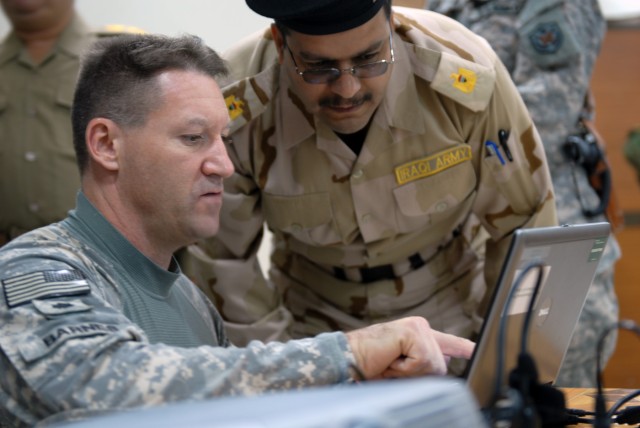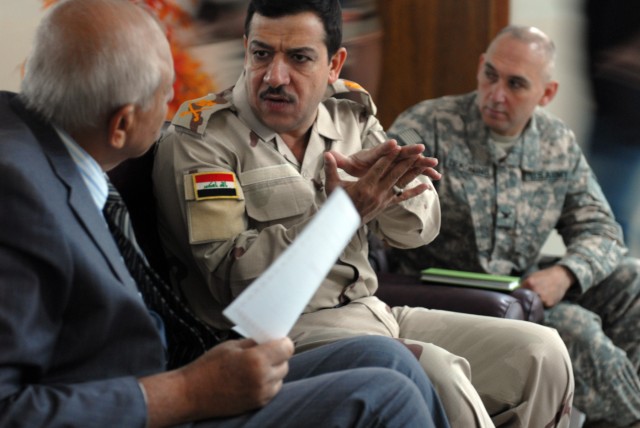BAGHDAD - For the first time at al-Muthana Military Hospital, the only Iraqi military hospital in Baghdad, U.S. and Iraqi Army doctors gathered for a joint medical conference to share knowledge and experience, Sept. 30.
"We hope to keep these medical lectures going," said Lt. Col. Jeff Callin, the Multi-National Division - Baghdad surgeon. "We're focusing on programs over projects...because in the long run you've educated a generation, instead of built a brick and mortar building."
Callin, a native of Belton, Texas, emphasized the importance of doctors with different backgrounds and areas of expertise coming together to educate each other.
"We're trying to get these guys doing what doctors do- go to medical conferences and talk to other doctors," said Callin. "We're trying to get referral networks going. Lots of people don't know there are specialists out here that are available."
One specialist attending the conference was Maj. Gen. Samir Abdullah Hassan, the director of Iraqi military medical services.
"This is a very important conference," he said. "Definitely everyone has experience out in the field and they come together here because Iraqi Army and American doctors can exchange ideas."
Military doctors provided pertinent case-studies on civilians and Soldiers from around the area. An Iraqi Army doctor lectured about the effects of diabetes on a shoulder condition known as 'frozen shoulder,' and a U.S. Army doctor lectured on trauma airway management.
Samir added that the case studies were applicable because Iraqi Army doctors don't always have the same tools to treat patients the same way U.S. Army doctors can.
"We've learned a lot from U.S. forces," Samir said to the audience of military and civilian doctors. "Like how to give equal treatment to everybody - terrorists and innocents. The Americans have taught us to treat all patients like people."
Though there were a variety of doctors attending, the military doctors were at the forefront of the training process rather than an afterthought, added Callin.
"This used to be the place in the Middle East to come for medical care," Callin explained about Iraq before the 1990s. "Hopefully, it becomes that way again...It takes some guts. As soon as you stand up around here, you have a target on you."
According to Callin, the conference was geared for high-level, experienced military doctors that will hopefully bring their newfound knowledge back to their troops.
Samir said that he has high hopes for the future, eventually turning the conference into an international military conference inviting other Arab and European countries. But, he added, this first conference is the most important step.




Social Sharing